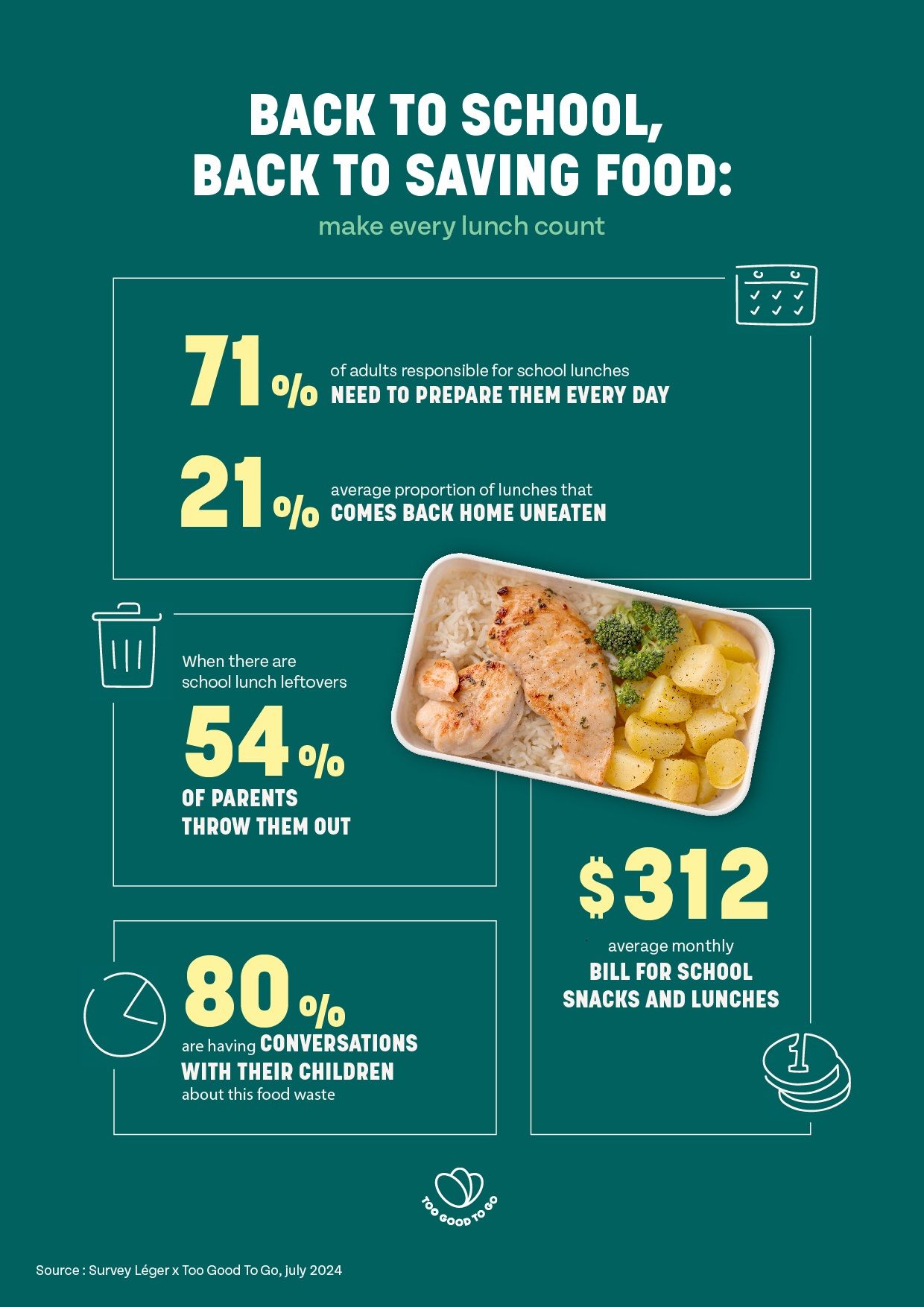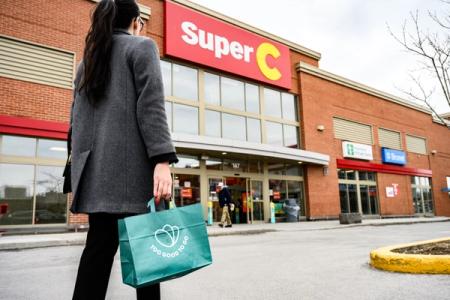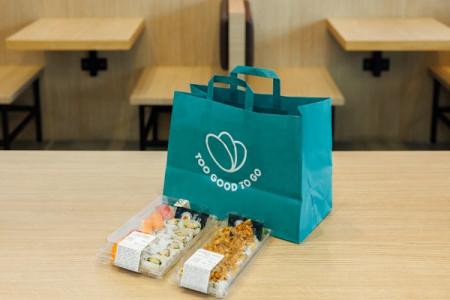PRESS RELEASESBack to School, Back to Saving: 90% of Parents in Canada Say School Lunches Return Home Not Fully Eaten Each Week
New survey from Too Good To Go and Léger offers insights around school lunch food waste
Too Good To Go, the certified B Corp social impact company behind the world's largest marketplace for surplus food, has conducted a survey with Léger to better understand the scale of school lunch food waste in Canada. This comprehensive study of over 2,000 adults responsible for preparing school or daycare lunches and snacks highlights the critical need for change as food waste remains a pressing issue in households across the country.
In Canada, 47% of food waste happens at the household level. By reducing food waste at home, an average family of four can save up to $2,000 each year.
School lunch food waste: a significant challenge
The survey sheds light on the ongoing struggles families face when packing school lunches. Among adults responsible for preparing school lunches and snacks:
- 90% say a portion of their child's lunch returns home uneaten each week.
- Out of those, 54% say they typically throw out the leftovers, most of which are fruit and veggies.
- The average Canadian family is expecting to spend $312 a month on school lunches and snacks in the 2024-25 school year. 88% report that this cost makes it essential to minimise food waste.
- 65% admit they are concerned about uneaten food in school lunches because food waste has a negative impact on the environment.
"Back to school is a busy time for parents getting back into a structured routine. Incorporating simple, practical strategies to reduce food waste in school lunches is a win for both families and the environment," says Andrea Li, Country Director of Too Good To Go Canada.

Practical solutions to tackle school lunch food waste
When preparing school lunches, parents are confronted with many challenges such as finding the balance between nutrition and taste (48%), dealing with children who are picky eaters (47%) and lacking inspiration for meal ideas (43%).
Involving children in lunch preparation from a young age is crucial. The study clearly shows that parents preparing these lunches with their children report a smaller proportion of leftovers. 8 in 10 parents in Canada say they are having conversations with their children about this food waste. When children have a say in what goes into their lunchbox, they often feel a sense of ownership over that food.
There are numerous strategies to reduce school lunch food waste, such as including more non-perishable items, making smaller or child-friendly portions, using dinner leftovers, or reusing what comes home. Too Good To Go also invites all parents who are looking to save on food this school year to download the Too Good To Go app and visit the Too Good To Go blog or Instagram (@TooGoodToGo.can (https://pr.report/23nc)) for tips and tricks.
"By saving one Surprise Bag of surplus food each week from food businesses like Metro, Longo's, or Eataly on the Too Good To Go app, families can effortlessly add fresh ingredients to school lunches while treating their kids to a little surprise. It's also an easy way to support local businesses and help the planet," concludes Andrea Li.
About Too Good To Go
Too Good To Go is a certified B Corp social impact company that connects users with partners to rescue unsold food and stop it from going to waste. With 100 million registered users and 170,000 active partners across 18 countries, Too Good To Go operates the world's largest marketplace for surplus food.
Since its launch in 2016, Too Good To Go has helped to save over 350 million meals from going to waste, the equivalent to 945,000 tonnes of CO2e avoided. According to Project Drawdown (2020), reducing food waste is the number one action you can take to help tackle climate change, by limiting the temperature rise to just 2˚C by 2100.
Share



